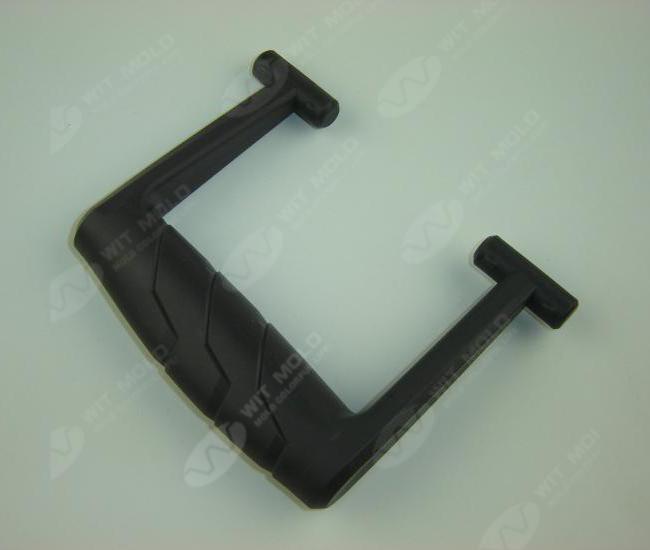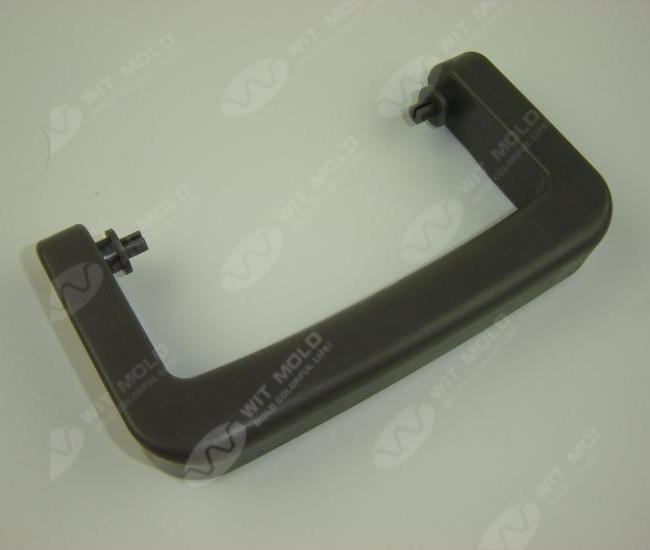Gas Injection Moulding (GIM) is a groundbreaking technology that has brought about a significant revolution in the field of plastic manufacturing. This innovative process has not only enhanced the quality and efficiency of producing plastic components but has also opened up new possibilities in design and sustainability. In this article, we will explore how GIM is transforming plastic manufacturing by delving into its numerous advantages and applications.

Advantages of Gas Injection Moulding (GIM)
Enhanced Part Quality:
One of the primary advantages of GIM is the improvement in part quality. By injecting gas (usually nitrogen) into the molten plastic, manufacturers can reduce the formation of weld lines and sink marks, resulting in smoother, stronger, and more aesthetically pleasing components.
Reduced Material Usage:
GIM enables the creation of hollow or partially hollow plastic parts. This significantly reduces material consumption, making it an environmentally friendly option while cutting down on production costs.
Lightweighting Opportunities:
In industries where weight reduction is crucial, such as automotive and aerospace, GIM offers a lightweighting solution. Hollow components are inherently lighter, contributing to fuel efficiency and overall performance.
Complex Geometry:
GIM allows the production of intricate and complex geometries that would be challenging or impossible to achieve with traditional moulding methods. This opens the door to innovative designs and functional features.
Improved Strength-to-Weight Ratio:
Hollow parts created through GIM can maintain structural integrity while being lighter, resulting in an improved strength-to-weight ratio that is highly desirable in various applications.
Enhanced Surface Finish:
The gas injection process helps eliminate surface imperfections, reducing the need for post-processing and finishing operations. This not only saves time but also ensures a higher-quality final product.

Applications of Gas Injection Moulding (GIM)
Automotive Industry:
GIM is widely used in the automotive sector to manufacture lightweight, structurally robust components such as instrument panels, door panels, and air ducts. It aids in improving fuel efficiency and overall vehicle performance.
Consumer Electronics:
The consumer electronics industry benefits from GIM by creating intricate, aesthetically pleasing, and durable parts for devices like laptop casings, smartphone components, and TV bezels.
Aerospace:
In the aerospace industry, weight reduction is critical. GIM is employed to produce lightweight yet strong components for aircraft interiors, reducing overall fuel consumption and enhancing flight efficiency.
Medical Devices:
GIM plays a vital role in manufacturing medical devices that require complex geometries, precision, and biocompatible materials. This includes components for diagnostic equipment and surgical instruments.
Furniture and Appliances:
Manufacturers of furniture and appliances use GIM to produce lightweight and aesthetically pleasing parts such as chair shells, refrigerator interiors, and dishwasher panels.
Packaging:
GIM is utilized in the production of plastic packaging with improved strength and reduced material consumption. This is particularly important in the food and beverage industry.
Conclusion
Gas Injection Moulding (GIM) stands as a testament to the continuous evolution of plastic manufacturing. Its unique advantages, such as enhanced part quality, reduced material usage, lightweighting opportunities, and complex geometries, have revolutionized industries ranging from automotive and aerospace to consumer electronics and medical devices. As sustainability and design innovation become more critical in manufacturing, GIM's role in shaping the future of plastic production is set to expand even further, creating a more efficient, eco-friendly, and versatile manufacturing landscape.






Comments
0